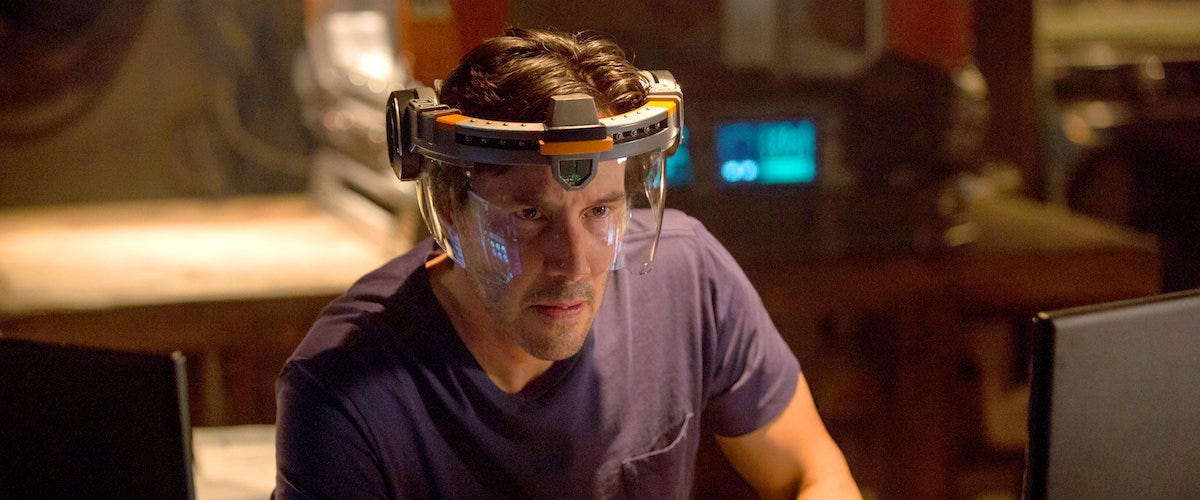Replicas

Replicas is an astonishingly unambitious movie built around a provocative premise. And while one could go to great lengths and countless paragraphs fantasizing about all the potential directions this film could have taken, a decidedly simple movie deserves a decidedly simple review.
To put it briefly, Replicas is about a scientist, William Foster, who is on the verge of a technological breakthrough, attempting to implant human consciousness into a robotic body. When his wife and children are killed in a car accident, Will becomes obsessed with taking the next step—implanting human consciousness into biological human clones.
Sounds like the plot of a potential Alex Garland movie, right? Well, sadly, there isn't a whole lot to say about the latest Keanu Reeves vehicle, aside from, "Agh, how cool would it have been if they'd done this instead?" It's a movie that begs to be redone from the ground up—the concept is great, rife with possibilities for philosophical quandary on the potential risk and reward of advanced cybernetics and human replacement, but the script that was written and the directorial execution leave everything to be desired. At every major plot development, I found myself thinking, "Oh boy, this might just get interesting;" there were countless opportunities for the film to lean into other genres and tones—psychological horror, Shakespearean tragedy, intimate examination of the reaches of human depravity—and at every turn, Replicas took the road more traveled. Every time things could have gotten weird, scary, sad, or the slightest bit unique, things got Hollywood-in-January instead.
By the midpoint, it was clear that the film was content to resign itself to regurgitated mediocrity and cowardice, and though a few way-too-late twists were thrown in for the "fun" factor, they elicited more of a snort, followed by, "Wait, really?" from me, rather than any sort of invested shock. It even has a perfectly mid-2000s, tongue-in-cheek, "wink" of an ending to demonstrate how little the writers appreciated the potential gold they were playing with.
As though the plotting and writing wasn't drab enough, Reeves and his costars bring nothing to the table to help elevate them. Alice Eve, playing Foster's wife Mona, delivers her lines like an android long before she ever dies in a car accident. Thomas Middleditch tries to bring some levity (and humanity) to the story by committing to his role as the only character saying, "Hey, don't you think this is all at least a little bit weird and twisted?" But even his character is underwritten in the awareness department, often agreeing to help Foster in his depraved antics within a few seconds after voicing a measly counterargument.
There isn't really any reason to see this movie, unless you want to walk out longing for a movie that will never be. I had an okay time laughing at the film's flippant, unaware delivery of such a bizarre and perverse concept, but I really can't recommend this to anyone.

